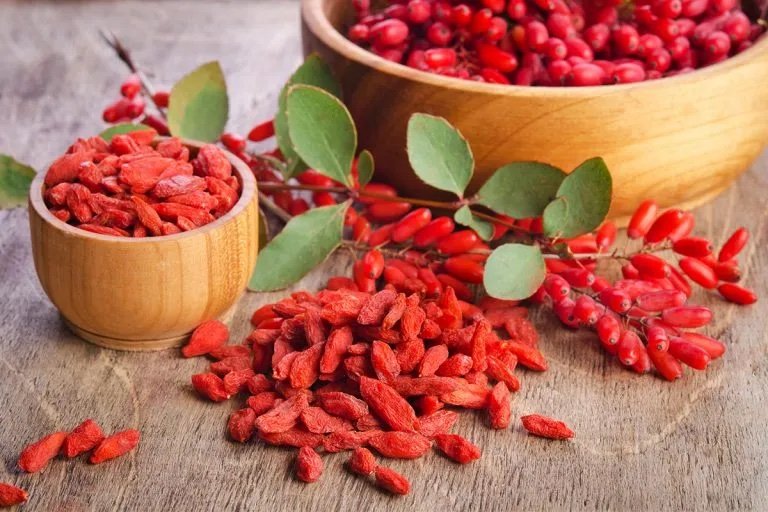Exploring Berberine: A Natural Option for Blood Sugar Management and Gut Health
In recent years, there has been a growing interest in natural compounds and their potential health benefits. Berberine, a bioactive plant compound derived from various herbs, has gained significant attention for its remarkable effects on blood sugar regulation and gut health. This blog post delves into the fascinating properties of berberine and its impact on managing blood sugar levels while promoting a healthy gut microbiome.
Understanding Berberine
Berberine is a naturally occurring alkaloid compound found in several plants, barberry, goldenseal, and Chinese goldthread. It has a long history of traditional use in Ayurvedic and Chinese medicine for its antimicrobial, anti-inflammatory, and antidiabetic properties.
Blood Sugar Regulation
One of the most well-studied effects of berberine is its ability to regulate blood sugar levels. Numerous scientific studies have demonstrated its effectiveness in improving insulin sensitivity, reducing insulin resistance, and controlling glucose metabolism.
Berberine activates the AMPK enzyme, often referred to as the "metabolic master switch." By activating AMPK, berberine stimulates glucose uptake in cells, enhances glucose metabolism, and improves insulin sensitivity. These actions help to lower blood sugar levels, making berberine a promising natural option for individuals with type 2 diabetes or prediabetes.
Several clinical trials have shown that berberine can effectively reduce fasting blood glucose, HbA1c levels, and postprandial (after-meal) glucose spikes. Moreover, berberine has been found to be as effective as some conventional oral antidiabetic medications, such as metformin, with the added advantage of fewer side effects.
Gut Health and Microbiome Modulation
In addition to its blood sugar-regulating properties, berberine has demonstrated beneficial effects on gut health and the modulation of the gut microbiome. The gut microbiota, consisting of trillions of microorganisms, plays a crucial role in digestion, immune function, and overall well-being.
Berberine exhibits antimicrobial and antifungal activity against a wide range of pathogens, including bacteria, viruses, fungi, and parasites. It helps rebalance the gut microbiota by inhibiting the growth of harmful bacteria and fungi. By modulating the gut microbiome, berberine supports a healthy intestinal environment.
Research has shown that berberine can improve gut barrier function, reduce intestinal inflammation, enhance the mucosal layer, and regulate gut motility. It may also have a positive impact on conditions such as irritable bowel syndrome (IBS), inflammatory bowel disease (IBD), and small intestinal bacterial overgrowth (SIBO).
Dosage and Precautions
While berberine has shown promising health benefits, it's important to consult with a healthcare professional before starting any supplementation, especially if you have a pre-existing medical condition or are taking medications. Berberine may interact with certain drugs, such as blood thinners and antidiabetic medications, and can cause gastrointestinal side effects in some individuals.
Typically, the recommended dosage of berberine for blood sugar management ranges from 500 to 1,500 mg daily, divided into two to three doses.
In Summary
Berberine is a natural compound with immense potential for blood sugar regulation and gut health. Its ability to improve insulin sensitivity, lower blood glucose levels, and modulate the gut microbiome makes it a promising adjunctive therapy for individuals with type 2 diabetes, or those seeking to support healthy blood sugar levels and/or their gut microbiome. As with any supplement, I recommended comprehensive blood work and also gut microbiome stool testing to understand the appropriateness of adding any supplement to your regimen. Particularly with Berberine, an herb with antifungal/antimicrobial properties may not be the best choice for you due to its ability to modulate the gut microbiome.
References:
1. Yin, J., Xing, H., & Ye, J. (2008). Efficacy of berberine in patients with type 2 diabetes mellitus. Metabolism, 57(5), 712-717.
2. Dong, H., Wang, N., Zhao, L., Lu, F., & Xu, L. (2012). Berberine in the treatment of type 2 diabetes mellitus: A systemic review and meta-analysis. Evidence-Based Complementary and Alternative Medicine, 2012, 591654.
3. Lan, J., Zhao, Y., Dong, F., Yan, Z., Zheng, W., Fan, J., Sun, G. (2015). Meta-analysis of the effect and safety of berberine in the treatment of type 2 diabetes mellitus, hyperlipemia, and hypertension. Journal of Ethnopharmacology, 161, 69-81.
4. Li, Z., Geng, Y., Niu, X., Li, X., Chen, X., Zhang, H., ... Zhang, X. (2018). A meta-analysis of randomized controlled trials on the effect of berberine on blood pressure. American Journal of Chinese Medicine, 46(3), 503-521.
5. Sun, Y., Yang, T., Wang, X., Xu, X., Yuan, Q., Yang, X., ... Yang, K. (2016). The effects of berberine on blood lipids: A systemic review and meta-analysis of randomized controlled trials. Planta Medica, 82(13), 1171-1183.
6. Zhang, Y., Li, X., Zou, D., Liu, W., Yang, J., Zhu, N., ... Zhang, H. (2008). Treatment of type 2 diabetes and dyslipidemia with the natural plant alkaloid berberine. The Journal of Clinical Endocrinology & Metabolism, 93(7), 2559-2565.
7. Cicero, A. F., & Tartagni, E. (2014). Antidiabetic properties of berberine: From cellular pharmacology to clinical effects. Hospital Practice, 42(4), 103-106.
8. Rabbani, G. H., Butler, T., Knight, J., Sanyal, S. C., & Alam, K. (1987). Randomized controlled trial of berberine sulfate therapy for diarrhea due to enterotoxigenic Escherichia coli and Vibrio cholerae. Journal of Infectious Diseases, 155(5), 979-984.
9. Gu, Y., Zhang, Y., Shi, X., Li, X., Hong, J., Chen, J., ... Zhu, X. (2016). Effect of traditional Chinese medicine berberine on type 2 diabetes based on comprehensive metabonomics. Talanta, 161, 509-518.
10. Zhang, Q., Piao, X., Ji, G., Zhang, H., & Xu, X. (2014). Studies on the antimicrobial activity of berberine against clinical isolates of methicillin-resistant Staphylococcus aureus (II). Zhonghua Yu Fang Yi Xue Za Zhi [Chinese Journal of Preventive Medicine], 48(2), 125-128.





